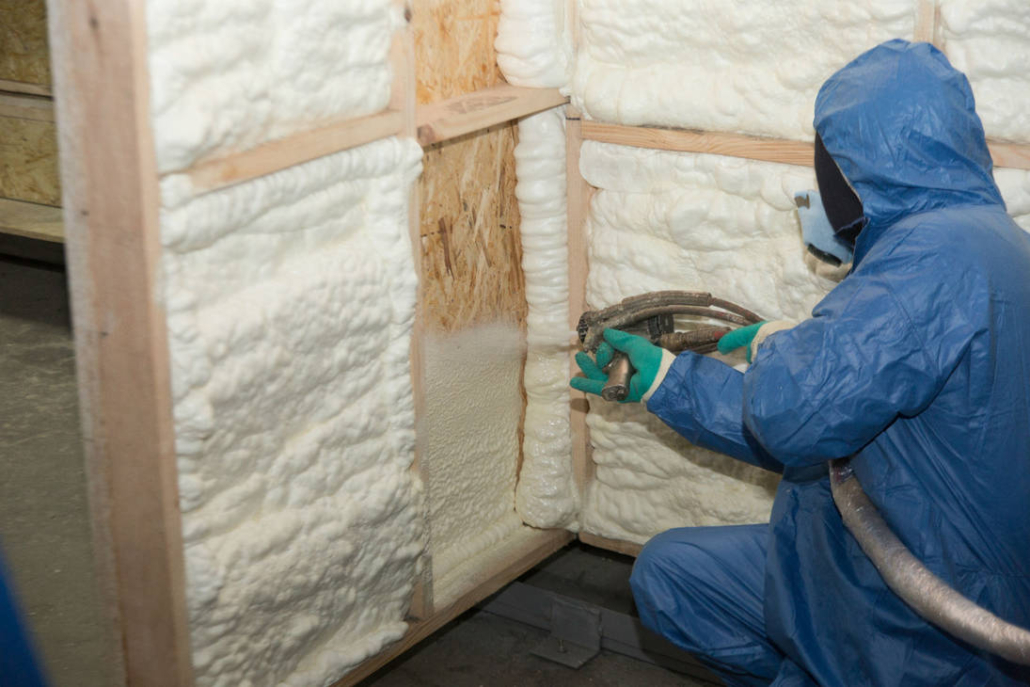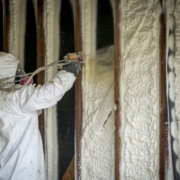What Should You Know Before Hiring Spray Foam Insulation Services?
Up to 90% of U.S. homes are under-insulated, according to the North American Insulation Manufacturers Association (NAIMA). Poor insulation contributes to energy losses as high as 40%, which drives utility bills and increases wear on HVAC systems. For Columbus property owners, this issue is amplified by seasonal temperature swings and building aging cycles.
Spray foam insulation offers a permanent solution for thermal performance, air sealing, and moisture control. But before choosing any provider, it’s important to understand the process, expectations, and qualifications required. Hiring the right Spray Foam Insulation Services in Columbus directly affects the longevity, energy savings, and safety of your investment.
Not All Spray Foam Is the Same—Material Type Matters
There are two primary spray foam types: open-cell and closed-cell. Each serves different functions, and selecting the wrong type for your space can lead to inefficiency or overpayment.
Open-Cell vs. Closed-Cell Foam Explained
Open-cell foam is less dense and allows controlled vapor permeability. It works well in interior walls, ceilings, and areas where sound dampening is a benefit. Closed-cell foam is rigid, highly dense, and acts as both an air and moisture barrier. It’s suitable for exteriors, basements, and metal structures.
Energy-Efficient Spray Foam for Columbus Climates
Columbus experiences hot summers and cold winters. Closed-cell foam provides superior thermal resistance (R-value per inch), making it ideal for attics, roofs, and crawl spaces. Open-cell foam is typically used in conditioned interior spaces to reduce air leakage and noise transmission.
Material Quality and Brand Certification
Hiring local spray foam specialists that use certified materials from reliable manufacturers ensures consistency. Products should be evaluated for VOC levels, curing time, and long-term performance metrics.

Professional Application Is Essential for Performance and Safety
Spray foam is not a DIY product. Proper application requires skill, equipment calibration, and safety measures that only trained professionals provide.
Equipment Calibration and Mixing Ratios
Incorrect ratios during on-site mixing can compromise insulation performance or off-gas harmful chemicals. Technicians must understand temperature sensitivity and substrate preparation.
Adherence to Fire and Building Codes
Spray foam expands rapidly and must be installed within fire-rated assemblies when used near electrical systems or HVAC ducting. Columbus codes require thermal barriers like ignition coatings in specific locations.
Air Sealing Requires Complete Coverage
Application gaps, inconsistent thickness, or poor adhesion result in heat loss and condensation. A professional foam insulation installer ensures seamless coverage throughout wall cavities, rim joists, and roof decks.
Timing and Preparation Influence Results
Hiring foam insulation services without proper prep planning can lead to delays, material waste, or suboptimal outcomes.
Building Must Be Dry and Temperature Controlled
Spray foam adheres best between 60°F and 80°F, and in dry environments. Moisture or cold surfaces inhibit expansion, reduce bonding strength, and may void manufacturer warranties.
Scheduling Around Other Trades
For remodels or new construction, schedule spray foam after all wiring and plumbing work is completed but before drywall installation.
Occupant Downtime and Ventilation
Home spray foam insulation may require temporary evacuation of occupants, especially during curing. Ventilation systems or fan setups must run to exhaust any residual vapors.
Choosing Local Spray Foam Experts in Columbus
Hiring based on location, experience, and certification ensures faster response times, better compliance, and reliable after-service.
Why Location Matters for Foam Insulation Services
Choosing a spray foam insulation team in Columbus reduces delays due to travel, material sourcing, or weather disruptions. Local installers understand regional building code nuances and seasonal humidity impacts.
Experience in Both Residential and Commercial Settings
Providers with diverse project portfolios tend to deliver higher-quality work. Residential structures often demand different application techniques compared to commercial buildings like warehouses or schools.
Qualifications to Look For in Foam Insulation Experts
Look for installers certified by SPFA (Spray Polyurethane Foam Alliance) or ICC-accredited programs. Verify insurance, safety training, and references from prior clients.

Comparison Table: Key Hiring Factors for Spray Foam Insulation Services
| Factor | Substandard Provider | Certified Spray Foam Professional |
|---|---|---|
| Material Source | Unbranded or generic foam | Trusted, certified foam manufacturers |
| Installation Technique | Uneven spray, missed cavities | Seamless, consistent application |
| Code Compliance | May overlook fire barrier rules | Follows all Columbus code requirements |
| Warranty Coverage | Limited or non-existent | Manufacturer-backed and labor warranties |
| Post-Installation Support | No follow-up service | Includes touch-ups and performance checks |
Questions to Ask Before You Hire
Make informed decisions by asking direct questions during your evaluation of spray foam providers.
- What type of foam do you recommend for my structure, and why?
- Do you follow Columbus-specific code requirements?
- Are your technicians certified and insured?
- What brand of spray foam do you use?
- How do you ensure proper ventilation during and after application?
What to Expect After Installation
Spray foam continues to impact energy performance and indoor comfort long after installation. Knowing what to expect helps with maintenance planning.
Immediate Sealing and Temperature Balance
After curing (usually 24 hours), expect rooms to feel more temperature stable. HVAC systems run less often due to the reduction in air leaks.
Long-Term Moisture and Mold Control
Foam’s ability to resist vapor penetration helps maintain dry crawl spaces and basements, reducing the risk of mold growth.
Impact on Indoor Air Quality
High-quality foam products emit low to zero VOCs after curing. Columbus homes using eco-friendly insulation options benefit from cleaner indoor air long term.
Ready to Achieve Energy-Efficient Indoor Performance?
Spray foam helps cut heating and cooling costs, reduces moisture risks, and enhances indoor comfort across seasons. But the benefits only hold if the service is done right.
Ohio Valley Spray Foam delivers quality foam insulation using advanced methods backed by years of field experience. Serving Columbus, OH, the team supports energy-conscious projects with reliable outcomes and high-performance materials.
Call (740) 629-9984 or email sprayfoamllc@yahoo.com to schedule your assessment.
FAQs
How long does spray foam insulation take to install?
Most residential jobs take one to two days, depending on square footage and accessibility. Proper prep, drying time, and curing periods are factored into that timeline.
Can spray foam be applied over old insulation?
No. Existing insulation must be removed for proper bonding and expansion. Foam requires direct contact with the substrate to form a continuous air seal.
Is spray foam suitable for pole barns or metal structures?
Yes. Closed-cell foam works especially well in metal buildings where condensation and temperature extremes are common.
What safety measures are followed during spray foam application?
Installers use respirators and full-body gear, and ventilation fans are placed during and after spraying. Occupants must vacate the property until foam is cured.
Will this insulation qualify me for energy rebates?
Many Columbus-based rebate programs accept energy-efficient spray foam upgrades. Confirm eligibility with your local utility provider or state rebate program.
Reviewer
With 11 years in the spray foam field, Aiden Baker reviewed this content and provided advice on building steady growth through practical, honest communication.

